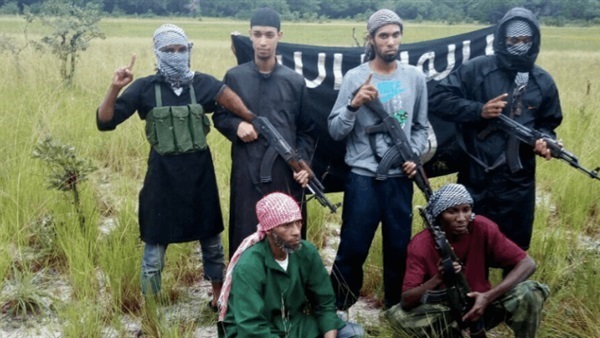Mozambique creates the Next Boko Haram version

After the Islamist insurgent group al-Sunnah wa
Jamaah (ASWJ) killed seven people in northern Mozambique in July, Daesh claimed
involvement, the second time they have done so since June. In the weeks since,
ASWJ attacks have continued, most recently the shooting of five people on
August 23.
The evidence to substantiate direct links between Daesh
and ASWJ is slim and ASWJ does not need a transnational affiliation to be
considered a threat to stability in Mozambique.
The group has clashed repeatedly with Mozambican
security forces since October 2017 and is linked to more than 140 violent
events that have resulted in more than 400 reported fatalities, according to
the Armed Conflict Location & Event Data Project (ACLED).
The threat to the country and the region is real,
and Mozambique’s current approach threatens to escalate the crisis. The
experience of other African countries provides an instructive lesson: A
hardline response that depends solely on repression will only make things
worse.
Mozambique needs to handle this growing security
challenge in a way that will tackle the problem instead of exacerbating it with
heavy-handed tactics justified as being “tough on terrorism.” A more
comprehensive approach, which focuses on shared socioeconomic development and
leverages international partnerships, would be more effective in fighting
extremist groups like ASWJ.
Mozambique’s response to the spate of ASWJ attacks
has been extremely heavy handed and militarized, with allegations of widespread
human rights abuses by security forces. After the group’s first attack in
October 2017, the government shuttered mosques and detained up to 300 people
without charging them. The government has not let up.
In late 2018, the government again carried out
large-scale arbitrary detentions, and the counterinsurgency campaign as a whole
has been characterized not just by mass arrests but also by torture and
extrajudicial killings.
In addition to physical repression, the government
has also responded to the crisis through media suppression and censorship.
Since June 2018, the government has barred media access to the region; those
who have attempted to circumvent the ban have been detained. In January of this
year, Amade Abubacar was arrested for his reporting on violence in Cabo Delgado
and was denied food and medical treatment. Unsurprisingly, this has had a
chilling effect on Mozambicans’ willingness to speak openly about the conflict.
On a recent trip to Mozambique, one of us (Noyes) found a general reluctance to
discuss the emerging threat.
Repression of this nature is likely to backfire.
Indeed, detaining or killing religious leaders usually only inflames tensions
and accelerates the threat.
Mozambique is at risk of repeating mistakes made
elsewhere in Africa when responding to extremist insurgencies. Both Nigeria and
Kenya responded to similar threats with repressive tactics, but this only
amplified religious and ethnic tensions and provided fodder for extremist
recruiting. The rise of Boko Haram—the deadliest group in Africa in 2015—and
the enduring threat from al-Shabaab in Kenya show how these approaches proved
counterproductive in the long run.
A turning point in Boko Haram’s history came in
2009. A confrontation between sect members and the Nigerian police originally
concerning a helmet regulation escalated and prompted a harsh response from the
state. The crackdown resulted in the deaths of more than 700 people in
Maiduguri, the capital of Borno state, including the sect’s leader Mohammed
Yusuf.
When the group reemerged under the leadership of
Abubakar Shekau a few years later, it had metastasized from a largely
nonviolent dissident sect with some criminal characteristics into a violent and
virulently anti-state movement.
A similar process played out in Kenya. After a
series of al-Shabaab attacks, the Kenyan government cracked down on the Somali
and Muslim communities there, arresting thousands. This strategy of collective
punishment backfired terribly. A 2014 study looking at al-Shabaab recruitment
in Kenya, found that the “single most important factor that drove respondents
to join al-Shabaab, according to 65% of respondents, was government’s
counterterrorism strategy.” The killings of several clerics in Mombasa, Kenya,
also ratcheted up tensions and grievances.
A recent United Nations report found that this
pattern holds beyond just Nigeria and Kenya, concluding that those who join
extremist groups very commonly hold grievances against the government and
particularly distrust the police and military.
These findings suggest that Mozambique’s militarized
approach to counterinsurgency is likely to be counterproductive.





